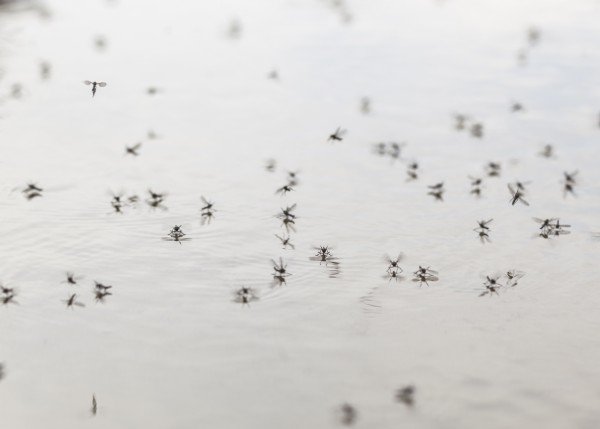In 2020*, the Forsyth County Department of Public Health (NC) vector control program demonstrated improvements in both insecticide resistance training (IRT) and capacity for cooperation and coordination with nearby vector control programs compared to their self-assessment in 2017. They attributed these improvements to funding and mentorship programs.
Forsyth County’s vector control program funding came from the state, the federal government, and organizations such as the Centers for Disease Control and Prevention (CDC). They also saw improvements through state-level initiatives in which they worked with the state entomologist to help consolidate and standardize data throughout the state.
Expanding Capacity for IRT and Collaboration with Other Programs
Communication and collaboration proved to be key for Forsyth County as they worked to expand their program capacity. They partnered with Eastern Carolina University to expand their program to include insecticide resistance training. Despite not being able to do the insecticide resistance training in-house, they have used their networks to Improve their program and expand their overall program capacity.
“So, we’re still not able to do it in-house, but we still, through our networking, which has come about since about 2016 or 2017, we’ve been able to establish enough of a network to where we can get these things done,” said Ryan Harrison, Vector Control Specialist of Forsyth County.
Forsyth County also worked with NACCHO to partner with Davidson County in a mentorship program from 2019-2020. Forsyth served as the mentor which allowed them to reflect on their program and identify vital resources and information that helped their program thrive.
Forsyth County is also a part of the North Carolina Mosquito and Vector Control Association, of which Ryan Harrison has previously been elected president of. This network, along with the use of VectorSurv, has greatly increased communication efforts between counties and helped share information and techniques that have benefited Forsyth County.
Resources and Advice for Other Programs
The pandemic, despite bringing all normal proceedings to a halt, did not deter Forsyth County from expanding its network or knowledge base. Trainings, including virtual trainings, have helped both individual employees and the department as a whole.
“It’s just really through working with NACCHO, I’ve been able to network with people in different states that I wasn’t able to before, and of course now with the pandemic, most of our trainings are coming right to us, and it’s absolutely incredible,” said Harrison. “It’s terrible because we’re not having that interpersonal communication and getting to sit with people and socialize, but at the same time, the amount of information that’s been able to be transmitted over the internet in the form of trainings and tick trainings, taxonomy trainings, mosquito trainings, it’s just staggering.”
As for advice, he would offer other programs, Harrison suggested that it all starts with collecting data and building up the capacity to do insecticide resistance training. Especially in the face of staff shortages, developing a set of protocols and standardizing practices helps to utilize available funding to the most of its capabilities.
*This interview was conducted in 2021.






